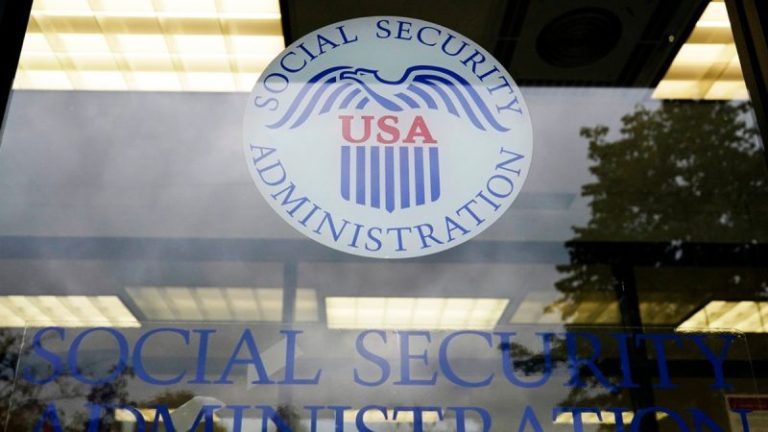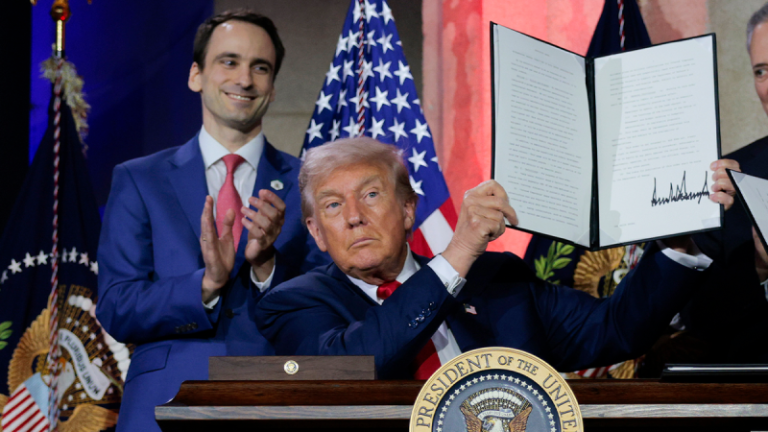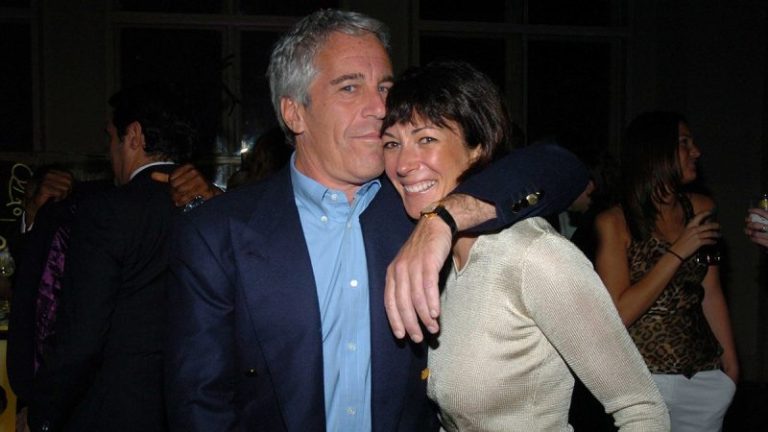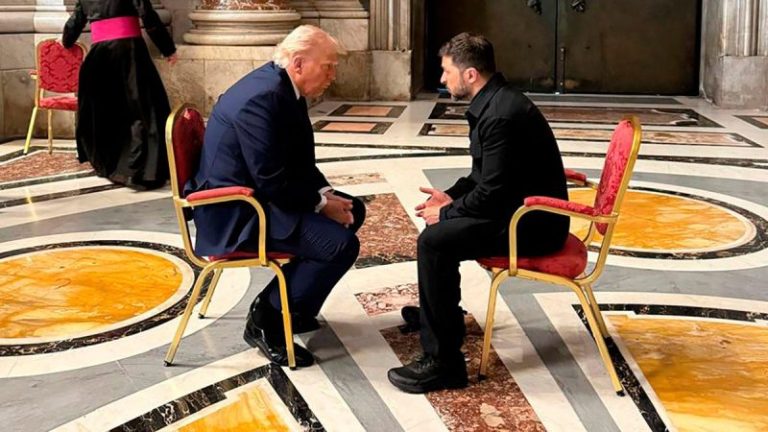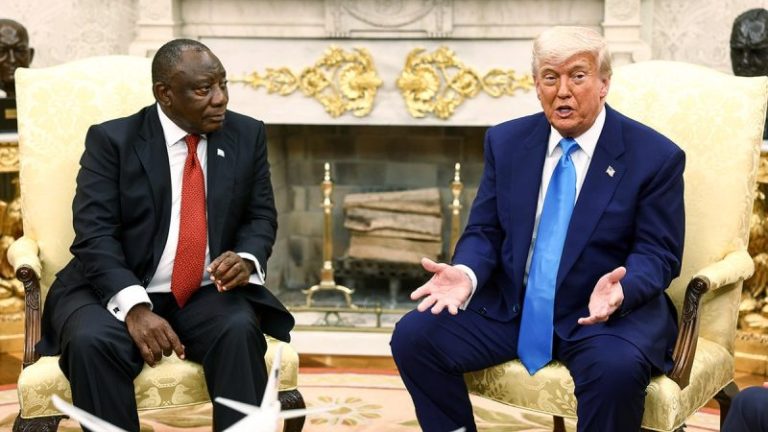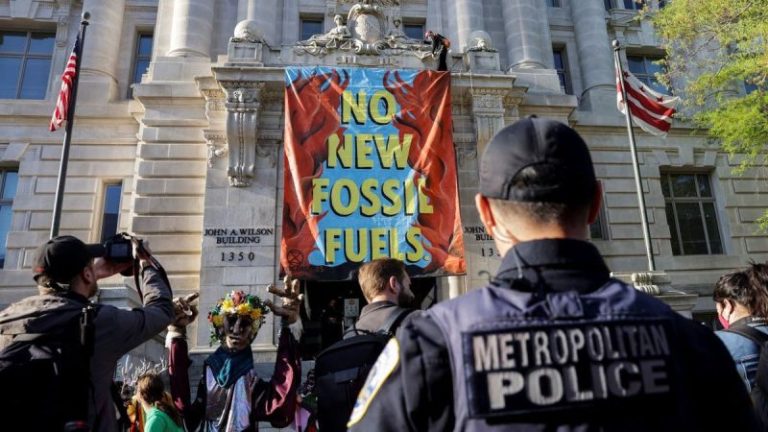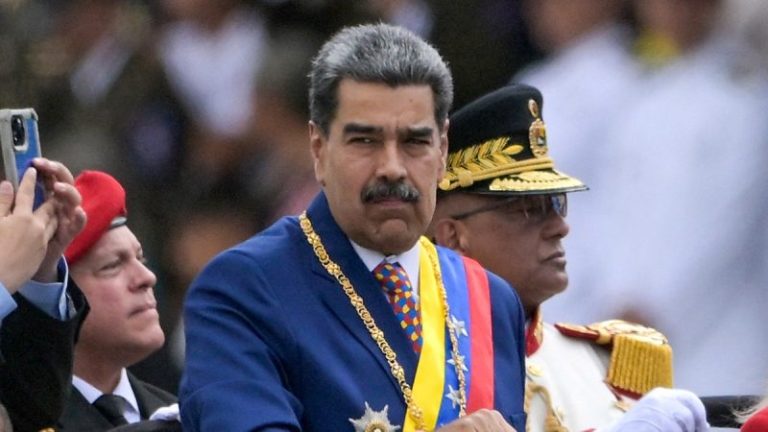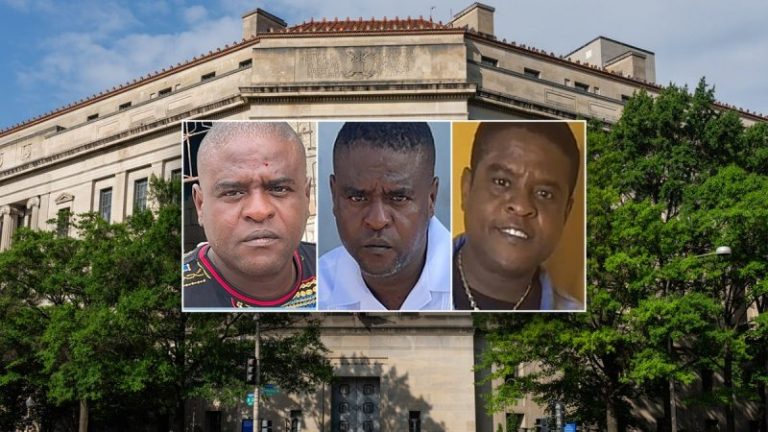The Democratic National Committee slammed Vice President JD Vance for fishing on a private lake with British Foreign Secretary David Lammy during Vance’s official trip to the United Kingdom.
Republicans were quick to respond to what appears to be the latest in a series of attacks by Democrats against the vice president over outdoor activities and family outings Vance mixes in during his rigorous official travel schedule.
The DNC War Room issued a press release Wednesday titled ‘VACATION VANCE AT IT AGAIN: Vance Fished ‘Illegally’ With UK Foreign Secretary While Americans Drown in Sky-High Costs.’
Vance and Lammy met at the foreign secretary’s official country residence, known as Chevening House, located south of London, on Friday for talks centered on the Israel-Hamas conflict and Russia’s war in Ukraine.
They went fishing on the estate grounds before their scheduled meeting. Vance briefly joked to reporters that the ‘one strain on the special relationship’ he has with Lammy ‘is that all of my kids caught a fish, but the foreign secretary did not.’ The vice president soon delved into more serious topics, including telling reporters that, unlike the U.K., the United States has ‘no plans to recognize a Palestinian state’ given the ‘lack of a functional government’ in Gaza.
Their meeting came a week before President Donald Trump’s upcoming high-stakes meeting with Russian President Vladimir Putin in Alaska.
In its release on Wednesday, the DNC charged, ‘Vance is living it up on his summer holiday — on the taxpayers’ dime — all while working families face sky-high inflation and the largest cuts to health care and food assistance in American history.’
Kiersten Pels, a spokeswoman for the Republican National Committee, said in a statement to Fox News Digital, ‘The DNC’s donors are OK with funding press releases on a fishing rod license? They might want to pull their money out now before the last of it vanishes down the drain.’
U.K. outlets reported that Lammy did not buy a valid fishing license before the outing with Vance. In a statement to Sky News, the British Foreign Office said the secretary ‘has written to the Environment Agency over an administrative oversight that meant the appropriate licences had not been acquired for fishing on a private lake as part of a diplomatic engagement at Chevening House last week.’
The agency reportedly requires rod licenses for fishing of freshwater species in England and Wales for people 13 or above.
During his visit to the U.K. last week, Vance also gave a brief address to U.S. troops stationed at RAF Fairford in Gloucestershire.
The DNC claimed Vance spoke to troops ‘for only six minutes before returning to his $10,000 per week luxury Cotswolds manor.’
The release also took issue with Vance allegedly ‘using public resources’ earlier this month ‘so he could do boating on his birthday.’
‘Vance fished ‘illegally’ in the United Kingdom, potentially costing the foreign secretary a £2,000 fine. Vance even had former Chancellor George Osborne plan his vacation’s social agenda, including relaxing in the ‘Hamptons of the UK,’’ the release said.
The DNC further charged that Trump and Vance ‘ripped away health care from 17 million Americans, slashed food assistance for over 22 million families, and unleashed economic chaos on the American people — all to give their billionaire friends and donors another round of massive tax handouts.’
‘While working families struggle to get by, it’s clear where Vance’s loyalties lie — and it’s not with them,’ the DNC wrote.
The latest attack comes after Democratic California Gov. Gavin Newsom, a potential 2028 presidential contender, bemoaned Vance’s recent visit to Disneyland with his children.
‘Hope you enjoy your family time,’ Newsom wrote on social media. ‘The families you’re tearing apart certainly won’t.’
In response, Vance wrote, ‘Had a great time, thanks.’
Critics also attempted to paint Vance as entitled after the vice president’s security detail had an Ohio river’s water levels raised to accommodate a kayaking trip he and his family took to celebrate his 41st birthday. The U.S. Secret Service made the request to the U.S. Army Corps of Engineers so that motorized watercraft and emergency personnel could operate safely.
Before his political career, Vance notably penned an autobiography, ‘Hillbilly Elegy,’ which describes how he was raised by an opioid-addicted mother in Appalachia, joined the Marines and found success at Yale Law School.
In a recent interview on ‘The Katie Miller Podcast,’ Vance revealed that reserving ‘sacred time’ with family allows him to balance his official duties with the duties of being a husband and father.
‘It’s possible to do it even in my job,’ he said. ‘Yes, if like a war breaks out, then sometimes you have to cancel even the sacred time. But we’ve been pretty good about making sure that I have at least a couple of hours with my family every single day.’


